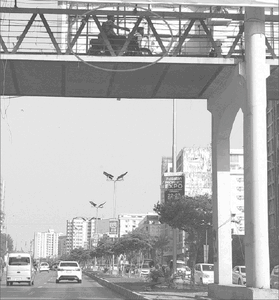PAKISTAN is one of the few countries to achieve the ‘on track’ status on Sustainable Development Goal (SDG) 13 which relates to climate action. The official mission statement of this target is to “take urgent action to combat climate change and its impacts”.
The country’s progress on SDG 13 is a result of several great policies and initiatives to improve the environment and manage a changing climate. These initiatives included Clean Green Pakistan, Ten Billion Tree Tsunami Programme, Protected Areas Initiative, and Recharge Pakistan.
However, it is a sad reality that despite these initiatives and success, Pakistan remains extremely vulnerable to the impacts of climate change. According to the Global Climate Risk Index 2020, Pakistan was ranked fifth on the list of countries most vulnerable to climate change.
Between 1999 and 2018, the country witnessed 152 extreme weather events and suffered huge losses equalling $3.8 billion. The health and economic impacts of these events — such as heatwaves in Peshawar and Karachi, and Lahore’s overwhelming smog — are intense.
In recent times, Pakistan has paid serious attention to addressing growing environmental challenges. Several policies and public-sector initiatives have been launched and promulgated.
Significant milestones include strengthening environmental protection agencies (EPAs) at both federal and provincial levels, setting up environmental laboratories, environmental courts, National Environment Quality Standards, and National Energy Efficiency and Conservation Authority (NEECA).
While the official machinery is there to take care of the country’s environmental sustainability agenda, the responsibility for conserving the environment and its resources rests with all the stakeholders, including the individuals.
Private-sector players have launched several pilot initiatives, such as awareness campaigns, cleanliness drives, and water, sanitation and hygiene (WASH) programmes. However, there have been no checks and balances on certain harmful acts, including irresponsible hospital and municipal waste disposal, depletion of forest cover, extensive and unsustainable use of water in agriculture, etc.
At the same time, carelessness on the part of citizens, such as littering, overreliance on motorised transport and burning crop residue after harvests, is also to blame for exacerbating environmental challenges.
Syed Abdul Majeed Musavi
Hyderabad
Published in Dawn, May 2nd, 2022

































